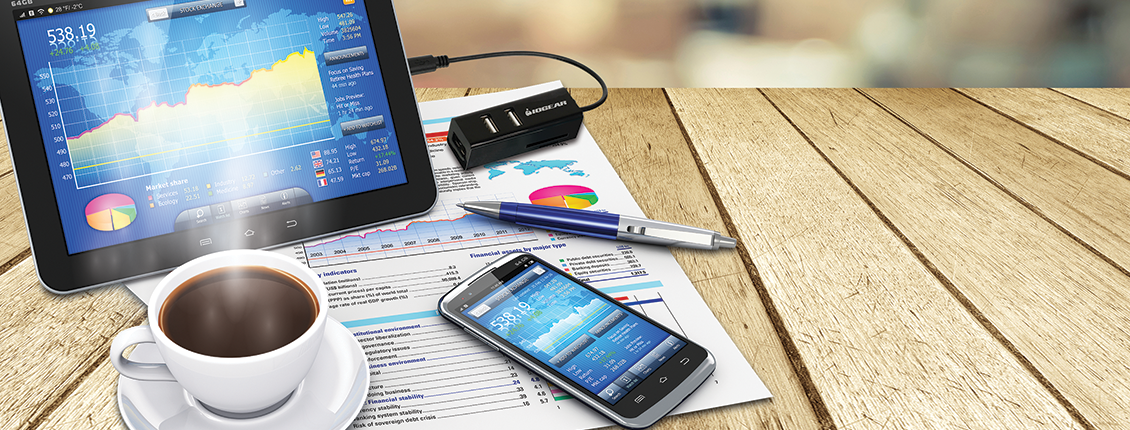
USB OTG: The Little Connector That Could
Do your customers want to add tons of storage to their smartphone or tablet? Use a keyboard to make taking notes easier? Connect wired Ethernet? Control a DSLR camera from an app? Then you need to introduce them to USB On-the-Go, or USB OTG.
You may have heard of USB OTG, before. But do you know what it actually refers to? Simply put, it allows the user to plug USB peripherals into a mobile device just like they would into a computer.
Instead of a micro A or a micro B USB port, a USB OTG device uses something called a USB micro AB port. It’s designed to allow both micro A and micro B USB devices to connect.
But What Does It Do?
One of the main uses of USB OTG is to use an external keyboard, mouse or game controller on a portable device. A product like this 6” Micro USB OTG Host Adapter Cable allows the user to hook up regular USB peripherals to a smartphone or tablet, which is great for those who want to use a tablet as a laptop replacement.
Another use is for USB Ethernet adapters. While wireless networking is mostly ubiquitous now, wired Ethernet is still a good option for speed and security, and some places may not have wireless networking. A regular Ethernet adapter can be turned into an OTG wired Ethernet adapter with the same OTG adapter cable mentioned above.
Extra storage is also a great application for OTG. A regular drive or card reader plugged into the previously-mentioned OTG adapter would work just fine. However, some portable flash drives like the Store & Go Nano USB Drive with Micro USB Adapter may plug directly into the micro AB port, bypassing the need for an OTG adapter.
So What’s the Catch?
OTG has three major limitations inherent to the standard:
- OTG only supports 5 volts of power supplied over USB. This limits its use for devices that draw more power, such as portable hard drives. Some work and some don’t—usually it depends on the size of the hard drive. Since most portable hard drives are mechanical and not solid state, they need more power than the average accessory to spin the internal motor. USB flash drives and SD Card readers suffer no such limitation.
- Most OTG devices only have one OTG port. This means that the user can only plug in one peripheral at a time. Want a mouse and a keyboard? You’re out of luck.
- Not every mobile device supports OTG the same way. Samsung Galaxy smartphones and tablets have OTG, and most modern smartphones and tablets with a micro USB connection should support it, but you may have to check the documentation for less-popular devices.
There is a way to get around most of these restrictions, though: a powered USB OTG hub.
A USB OTG hub like this 4-Port USB Charging Hub with OTG allows the user to connect multiple USB devices and power all of them, making it possible to basically create a docking station for a tablet or smartphone. Adding a mouse, keyboard, portable hard drive and wired Ethernet adapter is easily possible with this hub. It negates the issue of only having 5 volts of power for devices that need more juice by using a separate AC adapter. This allows the smartphone or tablet to hook up to bigger devices that consume more power.
USB OTG is a great way to extend the capabilities of a smartphone or tablet. Here at Petra, we offer the accessories you need to keep your customers ahead of the technological curve. Keep watching the Petra Blog and we’ll make sure you’re up to date with the most important trends. For more OTG products or if you have more questions about how to incorporate them into your existing product lineup speak with your sales rep today!
